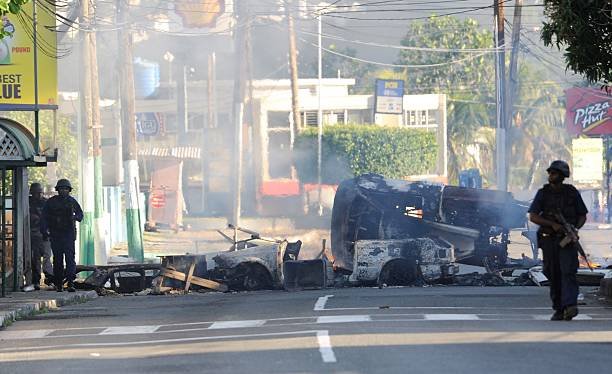Table of Contents
Introduction
The Caribbean, often celebrated for its pristine beaches and vibrant culture, is facing a troubling issue that has prompted the U.S. State Department to issue a reconsideration of travel warnings, particularly for Jamaica. The region is grappling with a surge in crime rates coupled with deficiencies in medical services, leading to concerns about the safety of travelers and residents alike.
According to reports from the U.S. Embassy in Jamaica, violent crimes such as sexual assaults, robberies, armed robberies, and home invasions have become distressingly common occurrences. This alarming trend has compelled authorities to raise the advisory level for travelers considering visits to Jamaica, indicating a significant risk associated with such trips.
The State Department’s latest data reveal on crime rate in Jamaica
the homicide rate in Jamaica is among the highest in the Western Hemisphere. Shockingly, statistics indicate that approximately 70 individuals fell victim to murder within the past 30 days alone, painting a grim picture of the security landscape within the country.
Moreover, the efficacy of local law enforcement agencies in responding to crimes has come under scrutiny. Despite the gravity of reported incidents, the Embassy notes that police responses often fall short of expectations, with cases left unaddressed even after arrests are made. This lack of effective intervention exacerbates concerns about public safety and law enforcement capabilities.
One particularly troubling aspect highlighted by the Embassy is the delayed issuance of death certificates for U.S. citizens who have met unfortunate fates in Jamaica. Whether due to accidents or homicides, the process of obtaining a death certificate from Jamaican authorities can extend up to a year, compounding the anguish and uncertainty faced by the families of the deceased.
The cumulative effect of these challenges underscores the urgent need for heightened vigilance and precautionary measures for those considering travel to Jamaica. While the allure of its natural beauty and rich heritage remains undeniable, prospective visitors must be mindful of the evolving security situation and exercise caution when making travel arrangements.
In response to these developments, the U.S. State Department’s advisory serves as a stark reminder of the risks inherent in traveling to regions grappling with escalating crime rates and inadequate medical infrastructure. Travelers are strongly advised to stay informed about current advisories, exercise prudence, and prioritize their safety when planning trips to Jamaica or other affected Caribbean nations.
Ultimately, the well-being of both residents and visitors hinges on concerted efforts to address the underlying factors contributing to crime and healthcare challenges in the region. By fostering collaboration among local authorities, international stakeholders, and communities, meaningful progress can be achieved in creating safer environments and safeguarding the welfare of all who call the Caribbean home.
Secure Traveler’s Insurance, Including Medical Evacuation Coverage, Prior to Visiting Jamaica
Be aware that U.S. Medicare/Medicaid does not apply overseas. Most hospitals and doctors overseas do not accept U.S. health insurance. U.S. citizens with medical emergencies can face bills in the tens of thousands of dollars, with air ambulance service to the United States in the range of $30,000-50,000.
If you want to travel to Jamaica:
- Do not attempt to bring firearms or ammunition. This includes stray rounds, shells or empty casings. The penalties for carrying firearms and/or ammunition, even inadvertently, are severe, and can include lengthy prison sentences.
- Avoid walking or driving at night.
- Avoid public buses.
- Avoid secluded places or situations.
- Do not physically resist any robbery attempt.
- Be aware of your surroundings and keep a low profile.
